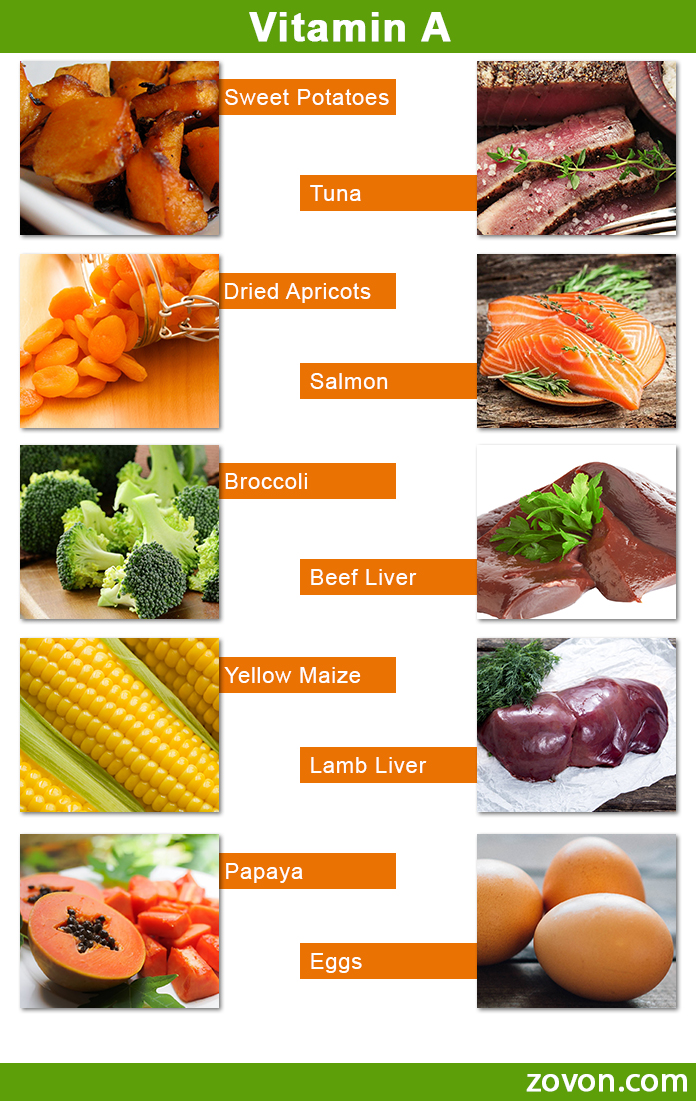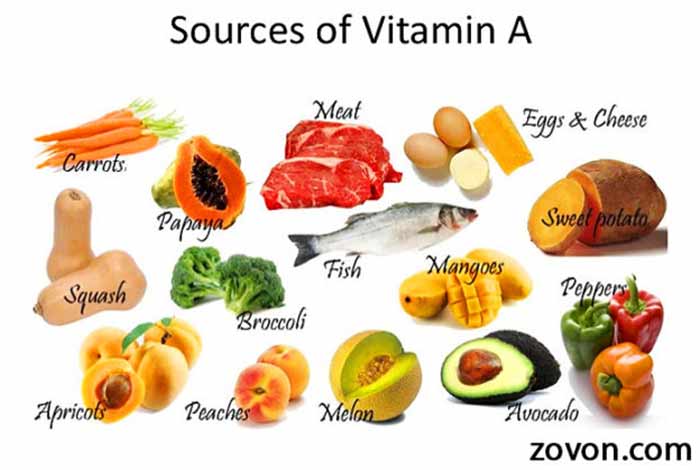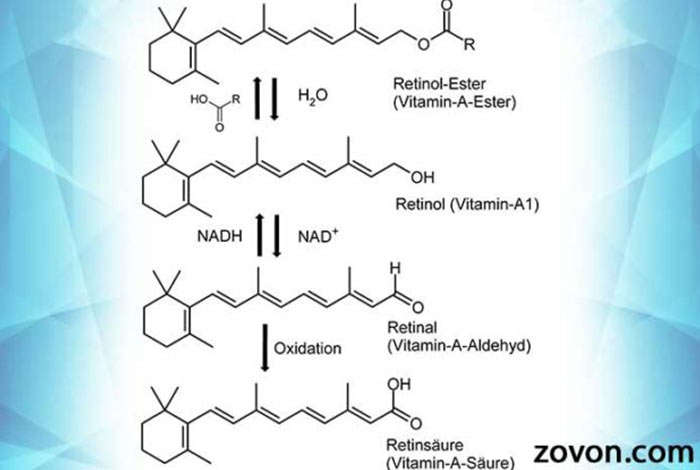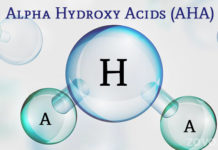
Vitamin A: Sources, Benefits, Risk, Dosages & Issues can Cure

Vitamin A, along with minerals and other vitamins is a vital micronutrient for the body. It is a group of nutritional organic compounds (retinal, retinol, retinoic acid) which is unsaturated in nature and soluble in fat. It promotes wellness of immune system, cell growth and better vision.
Vitamin A in food items is stored in the liver and transported to the required parts of the body when needed.
Structure and Composition:
Vitamin |
Chemical name |
Formula |
Molar mass |
|
Vitamin A |
Retinol ADVERTISEMENT
|
C20H30O |
286.45 |
|
Retinal |
C20H28O |
284.44 |
|
|
beta-carotene |
C40H56 |
536.87 |
Types of Vitamin A:
There are two types of vitamin A present in human diet-
1. Preformed vitamin A found in meat, fish and poultry products.
2. Provitamin A is an antioxidant found in fruits and vegetables. It is converted to vitamin A when needed by the body.
Sources of Vitamin A:

Vitamin A is important for various life processes including vision, boosting immunity, gene transcription and great skin. It is largely found in natural food items of green, yellow-orange and red colored vegetables and fruits.
Some of the major sources of vitamin A:

Plant sources of vitamin A |
Animal sources of vitamin A |
|
1. Sweet potato (cooked) |
1. Tuna |
|
2. Dried apricots, Pumpkin |
2. Salmon |
|
3. Dark green leafy vegetables, Broccoli |
3. Beef Liver |
|
4. Yellow maize |
4.Lamb Liver |
|
5. Papaya |
5. Eggs |
|
6. Carrots |
6. Breast meat |
|
7. Cantaloupe melon |
7. Chicken |
Vitamin A is found in the form of retinol (active vitamin) in animal sources while in plant sources it is found in the form of carotenes.
Benefits of Vitamin A:
Vitamin A is a vital nutrient with various health benefits which helps in the proper functioning and maintenance of the body.
Some of the benefits of Vitamin A are listed below:

-
Immune system:
Many functions of immune system depend on the sufficient levels of vitamin A. It helps to promote immunity and wellness level. Basically, it regulates the genes involved in immune functions.
-
Eye health:
Beta-carotene present in vitamin A reduces the chances of blindness and loss of vision by preventing macular degeneration. It also ensures and promotes the health of retina and forms visual purple in human eyes.
-
Skin care:
Vitamin A keeps our body free from toxins and radicals, which may cause harm to your skin. It ensures moisture retention to keep skin smooth and supple.
-
Promotes cell growth:
Vitamin A is important for re-growth and effective healing of the skin. It supports the external and internal skin cells. It also helps in binding tissues by producing glycoproteins.
-
Reduces risk of acne:
Vitamin A lowers down the production of excess sebum, which reduces the risk of acne. It maintains and regulates the mucous membranes and skin tissues.
-
Slow aging process:
Vitamin A can reduce age spots and fine lines. It is well known for its wrinkle eliminating properties. It slows down the process of aging by maintaining the overall health of the skin.
-
Lowers cholesterol:
It protects against serious risks stroke and heart disease by lowering the levels of cholesterol inside your body.
-
Prevents cancer:
It prevents some types of cancer because of its antioxidant properties. Intake of carotenoids in a higher amount lowers the risk of lung cancer.
-
Promotes hair growth:
It regulates and contributes to the generation of sebum (oil) which maintains the levels of moisture in hair and skin.
-
Boosts bone and muscle growth:
Vitamin A strengthens teeth and bones. It helps in the formation of dentin (layer of hard material) below the teeth. By retaining the shape and keeping bones healthy, it plays an important role in muscle maintenance and growth.
Health risks of Vitamin A:
Vitamin A is considered to be safe when taken in adequate amount for the body. Excess or low amount of vitamin A may cause several health problems.
VITAMIN A |
|
Excess |
Deficiency |
|
|
|
|
|
|
|
|
|
|
It is fat soluble and body usually stores excess amounts of vitamin A in the liver, when the levels of vitamin A changes, it leads to the toxicity called Hypervitaminosis. And it depends on the consumption of vitamin A by the body.
Fat malabsorption or liver disorders may lower the levels of vitamin A, which is the main cause of vitamin A deficiency. Inadequate consumption of vitamin A is the factor affecting deficiency of vitamin A.
Treatments of Vitamin A Health risks:
- Diet, rich in vitamin A is a common option for the treatment of vitamin A deficiency.
- Food fortification also enriches the food items with vitamin A.
- Oral medication methods and injectable drugs is also an option for regulating the vitamin A levels inside the body.
- Artificial supplements are commonly used for this purpose.
- Dietary diversification also helps in controlling Vitamin A deficiency(VAD).
- By stopping the intake of vitamin A in your diet, excess levels can be easily maintained.
- Vitamin E also helps in reducing and altering the excess amount of vitamin A.
- Liver transplantation is to be considered as the last option if no sign of improvement is left.
Recommended Dosage of Vitamin A:
Vitamin A is available in several forms. Its content in food is measured as retinol activity equivalents. One microgram (mcg) of retinol equals to 1 retinol activity equivalents (RAE). Dosage of vitamin A varies according to the sex and age.
Age |
Male |
Female |
Pregnancy |
|
0-6 months |
400 mcg RAE |
400 mcg RAE |
|
|
7-12 months |
500 mcg RAE |
500 mcg RAE |
|
|
1-3 years |
300 mcg RAE |
300 mcg RAE |
|
|
4-8 years |
400 mcg RAE |
400 mcg RAE |
|
|
9-13 years |
600 mcg RAE |
600 mcg RAE |
|
|
14-18 years |
900 mcg RAE |
700 mcg RAE |
750 mcg RAE |
|
19-50 years |
900 mcg RAE |
700 mcg RAE |
770 mcg RAE |
|
50+ years |
900 mcg RAE |
700 mcg RAE |
FAQs: What People Normally want to know about VITAMIN A?
1.How do I know if I need a dietary supplement containing an adequate amount of vitamin A?
If you experience the symptoms like thickened tongue, dandruff, acne and dry lips, this may be the indications of vitamin A deficiency. Consult a doctor for the best dietary supplements.
2. Who has the greater chances of having vitamin A deficiency?
It may occur to the adults suffering from gastrointestinal system diseases because they interfere with the absorption of vitamin A.
3. How can I prevent vitamin A deficiency?
Vitamin A deficiency can be prevented by including food items rich in vitamin A levels. Items like green leafy vegetables and animal liver can easily provide sufficient amount of vitamin A to the body.











